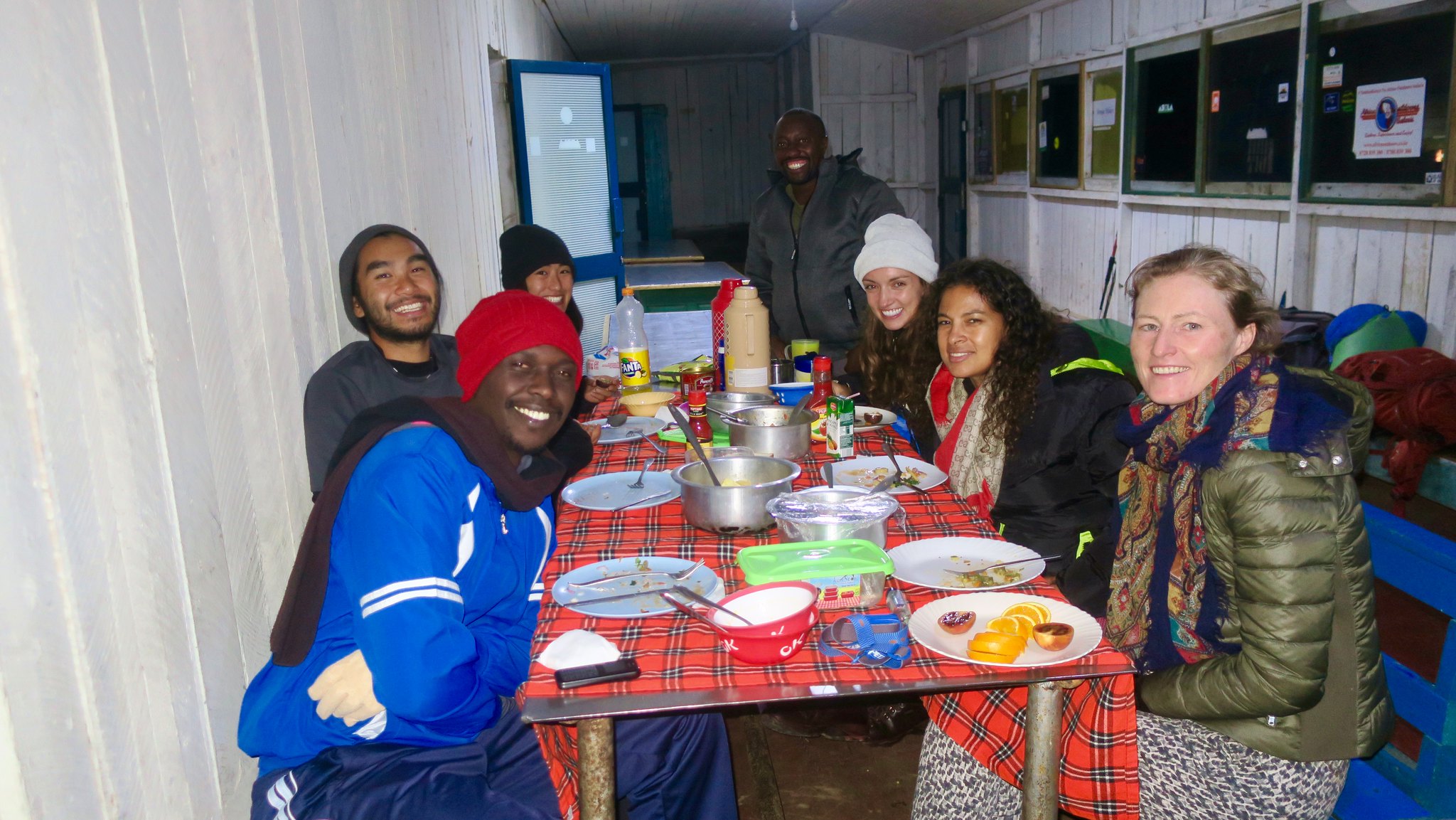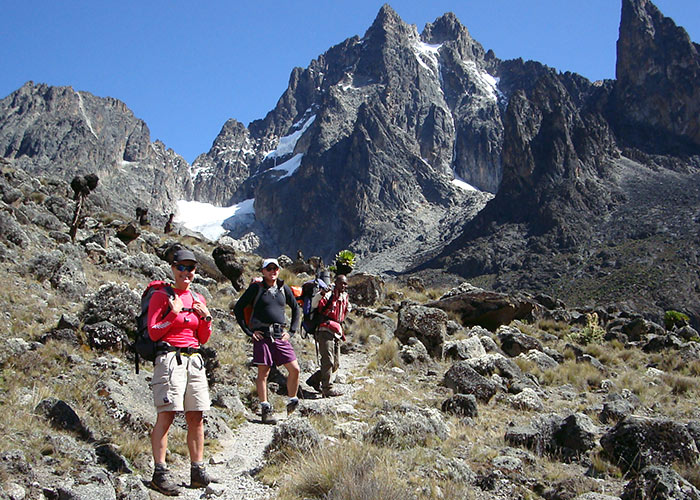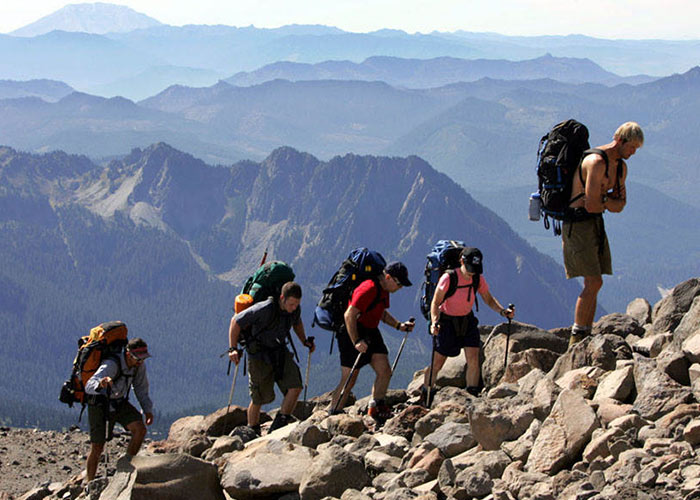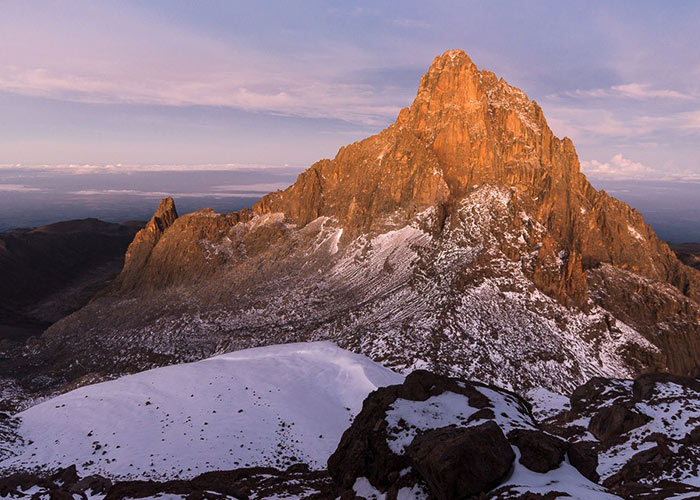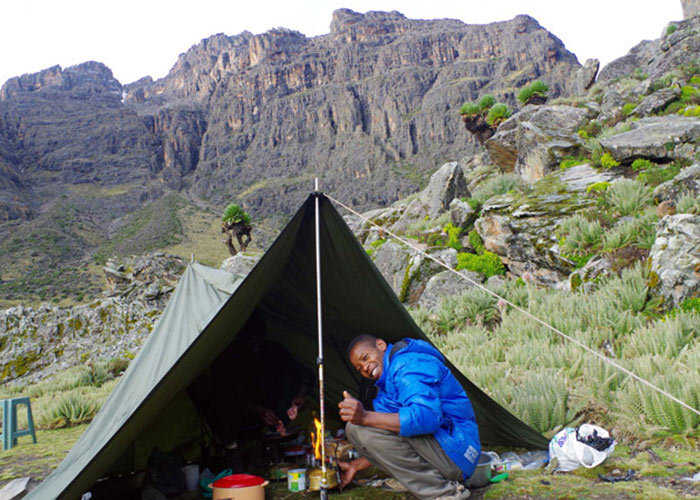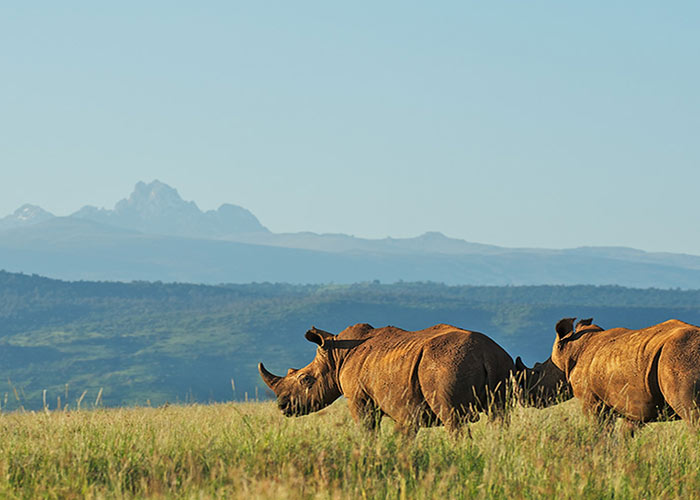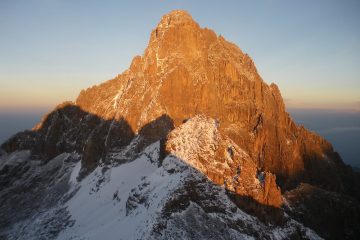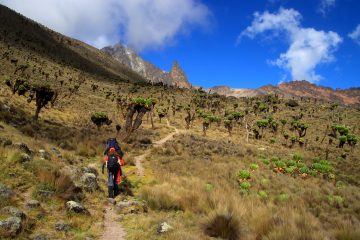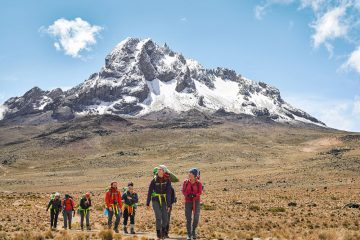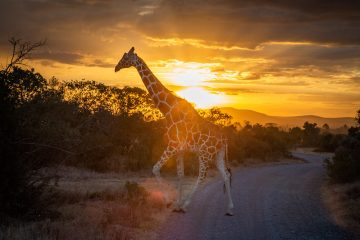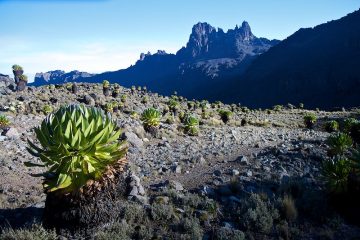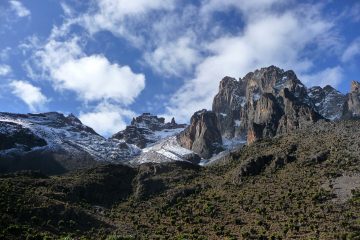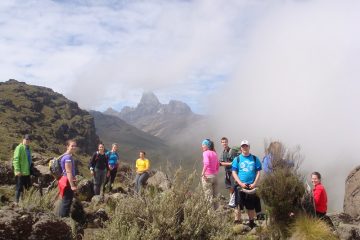Food is necessary for climbing Mount Kenya as you will need the energy to sustain you on the mountain. Not only will you need energy-giving meals but also the food should be a nutritional and balanced diet. You will If you’re climbing Mt Kenya, you’ll need to be completely self-sufficient because none of the lodges or campgrounds along the route provide food. Most packages, however, include cooks who will transport and prepare all meals for you along the trip. Even if this is the case, consume citrus fruits and/or citrus beverages, as well as chocolate, candies, or dried fruit, to maintain a healthy blood sugar level.
All of our food is fresh, and our team prepares and serves delicious meals. Three-course meals with vegetables, fruit, salads, desserts, soups, popcorn, biscuits, and a variety of drinks, including herbal teas. We want you to have a pleasant time on Mount Kenya, which includes delicious cuisine! Our chefs are all familiar with Western cuisine, so anticipate a soup starter with bread, tomato, and avocado side salad, followed by a chicken casserole with boiled potatoes and julienne carrots, a fresh fruit medley to conclude, and coffee and chocolate for supper.
If you have any food restrictions, please include them on your Booking Form and notify Tranquil Kilimanjaro personnel following your arrival and briefing.
While the facilities are often pretty basic, the cuisine is of another level, fresh and nutritional, and you will not go hungry as the portions provided are satisfying.
Most dietary restrictions may be accommodated by the kitchen, however, celiacs should bring their own supplies from home. Gluten-free goods are not available in Kenya.
Sweets and chocolate, as well as batteries, are available at Nairobi and Naro Moru stores, although you may wish to carry your own supply from home.
Breakfast
Bread, cereal, tea/coffee, fresh seasonal fruit, and a variety of pancakes, omelettes, bacon, beans, and sausages are served for breakfast.
Lunch
A packed lunch will be supplied to you, which will normally include sandwiches, chicken legs (or equivalent), fruit, chips, and cookies.
Snacks
After a hard day of hiking, you’ll be greeted with a flask of tea or coffee, as well as refreshments (usually popcorn and biscuits).
Dinner
Soup, a healthy serving of meat or fish with vegetables, rice, potatoes, or pasta, and fresh fruit will be served for dinner.
Water is replenished as you travel via mountain streams. Bring two 1 liter water bottles as well as adequate water purification pills. We recommend bringing flavor neutralizer pills as well, since this will make the water more pleasant, and it is critical to stay hydrated at this altitude.
Cooking on Mount Kenya
Cooking conditions are different at higher altitudes. The most important factor is that water’s boiling point is significantly decreased.
Water boils at 85°C at 4500m, for example; this is too low to adequately cook rice or lentils (pasta is preferable), and you won’t be able to make a proper cup of tea (instant coffee is the answer). As a result, cooking times and fuel consumption will be significantly increased, so plan appropriately.
Drink at least 3L of liquids every day and bring rehydration sachets to avoid severe headaches caused by dehydration or altitude sickness. Water-purification pills, which are available at most pharmacies, are also a good option (purifying water by boiling at this altitude would take close to 30 minutes).
Related: Meals and Water on Mount Kilimanjaro
Water & Water Purification on Mount Kenya
On the mountain, we don’t bring bottled water; instead, we boil all water that comes from rivers and glacier streams. Every evening, the staff will refill your water bottles. If you want a little more peace of mind, carry some water purification tablets with you (iodine is fine). You might also carry a Steripen, which kills all germs as well.

